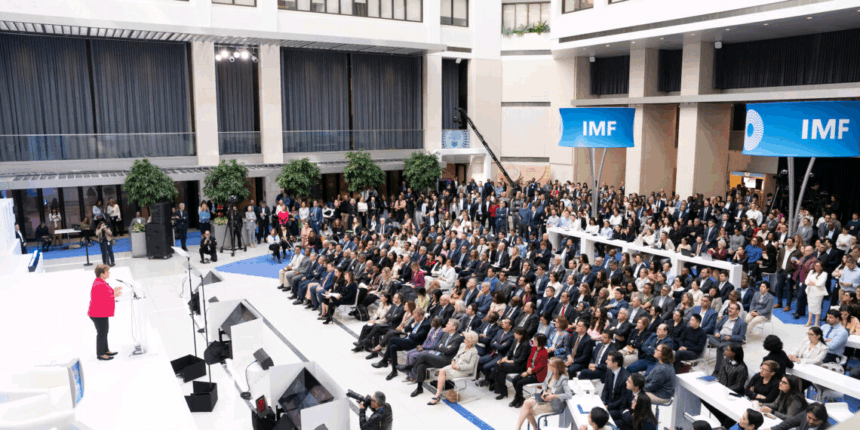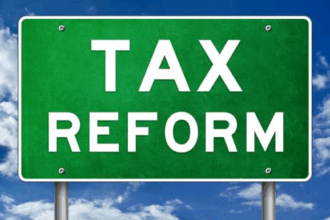-
IMF raises Nigeria’s GDP growth projection from 3.4% to 3.9% for 2025.
-
Nigeria expected to expand 4.2% in 2026, surpassing South Africa but slightly below Sub-Saharan average.
-
Higher oil output, investor confidence, and fiscal reforms cited as key drivers.
The International Monetary Fund (IMF) has revised Nigeria’s economic growth forecast upwards, projecting a 3.9% expansion in 2025 and 4.2% in 2026.
The announcement was made on Tuesday at the launch of the World Economic Outlook (WEO) 2025 during the ongoing World Bank and IMF Annual Meetings in Washington, D.C.
ATTENTION: Click “HERE” to join our WhatsApp group and receive News updates directly on your WhatsApp!
In its previous July 2025 update, the Fund had pegged Nigeria’s growth at 3.4% for 2025, meaning the latest projection reflects a 0.5 percentage point increase, signalling renewed confidence in Nigeria’s reform-driven recovery.
Domestic Drivers of Growth
The IMF attributed the upward revision to several supportive domestic factors, including:
Higher oil production boosting government revenue and exports.
Rising investor confidence in key sectors.
A supportive fiscal stance, particularly projected for 2026.
“Whereas growth in Nigeria is revised upward on account of supportive domestic factors, including higher oil production, improved investor confidence, and a supportive fiscal stance in 2026, many other economies see significant downward revisions because of the changing international trade and aid landscape,” the Fund noted.
Regional and Global Context
South Africa: Growth forecast slightly raised from 1.0% to 1.1% in 2025 but lowered from 1.3% to 1.2% in 2026.
READ ALSO: ASUU: We’re Victims of Government’s Inaction — Piwuna
Sub-Saharan Africa: Upgraded from 4.0% to 4.1% in 2025 and from 4.3% to 4.4% in 2026.
Globally, the IMF projects world growth to moderate to 3.2% in 2025 and 3.1% in 2026, reflecting ongoing uncertainties, trade protectionism, and slower trade volumes. Advanced economies are expected to grow at around 1.5%, with the US slowing to 2.0%, while emerging markets and developing economies hover just above 4%.
Global inflation is projected to ease to 4.2% in 2025 and 3.7% in 2026, with world trade volume growing at 2.9%, slower than the 3.5% recorded in 2024.
Policy Endorsement and Outlook
The IMF also reaffirmed support for the Central Bank of Nigeria’s tight monetary policy stance, describing it as crucial for managing inflation and safeguarding macroeconomic stability.
The upward revision positions Nigeria ahead of South Africa and indicates stronger investor and market confidence in the country’s economic management, even amid global uncertainties.



